Nawrocki's existential victory revives the Polish right-wing
These have been difficult years for the Polish right-wing. After returning to the center of the geopolitical chessboard thanks to the dynamism of the Morawiecki government in times of war on the borders of Eastern Europe, Donald Tusk's progressive coalition had prevailed in the October 2023 elections, beginning a progressive process of demolition of the institutional structures cemented by the Law and Justice party over the years.
Thus, in the deafening silence of the European institutions, in the name of an immoderate and messianic progressivism, but which winks at the European community (since it cannot be accused of violations of the Rule of Law) Tusk has beheaded numerous public bodies, media and conservative channels in the name of a violent spoil system.
After his victory in the parliamentary elections, Tusk spoke of the birth of a "combative democracy", comparing the end of PiS's previous governmental experience to the fall of the German Third Reich.
As also well pointed out in an editorial published in Nazione Futura by the academic and former Vice-President of the European Parliament Zdzisław Krasnodębski, this dialectic has stiffened the political clash, disqualifying the legitimacy of the governments from 2015 to 2023, defined as "occupiers" by Tusk.
The pro-European Tusk therefore perpetrated the same politically brutal strategies that he reported to the Law and Justice party.
With the parliamentary and European elections that have helped to maintain the consensus of Polish conservatives, another formation has entered the political-institutional arena: the Confederation of Freedom and Independence (Konfederacja Wolność i Niepodległość) of the duo Mentzen and Bosak.
A nationalist party linked to the cultural heritage of Roman Dmowski, it has distinguished itself in the months of the Russian-Ukrainian conflict as the main actor opposed to pro-Kiev policies and the reception of refugees fleeing the Russian-Ukrainian conflict.
Although an initial mistrust that derives from two visions of Poland attributable to two antithetical noble fathers (the mentioned Dmowski for the Confederation, the famous and inflexible Marshal Józef Piłsudski for Law and Justice) the presidential elections of May-June 2025 have sanctioned new and unprecedented forms of cooperation.
Karol Nawrocki triumphed. Jarosław Kaczyński had bet on him and he once again proved that he understands Polish voters like no other.
A historian by profession, a sports lover and an independent candidate, Nawrocki directed the Institute for Historical Memory against the crimes perpetrated against Poland, above all communist crimes.
During the election campaign he met Donald Trump, said he was more cautious about Poland's posture in the Russian-Ukrainian conflict (in the face of Kiev's possible entry into the European community) and is determined to re-establish a worthy defense of the connotations of Polish conservatism.
After Duda's double exploit, Law and Justice has understood the reason for the previous defeats, namely the need to broaden the coalition performance in the face of a Tusk more skilled in bringing liberals, socialists and the people's party together in an anti-PiS key. The choice of an independent and high-profile candidate repays the conservative front that was able to unite for the first time.
After the first round, Rafał Trzaskowski, mayor of Warsaw, had obtained 31.36% of the votes and on the night between 1 and 2 June he had rejoiced in front of the exit polls that saw him ahead of the conservative candidate.
Nawrocki preached caution and in the early hours of dawn the result was already acquired: exit polls overturned and a narrow victory with 50.89% of the votes.
Decisive in this sense was the contribution of the Mentzen Confederation which allowed, also through a massive use of social media, Nawrocki to gain consensus especially in the 18-24 age group.
Law and Justice thus returns to the Presidential Palace in Warsaw with an awareness: Nawrocki's victory is not a political victory but an existential one.
With the President having the right of veto, the last two years of Tusk's mandate are strongly at risk, with the reforms that the new President, in continuity with Duda, will be able to oppose. In the event of Trzaskowski's victory, the Tusk mandate would have ended the dismantling of the current main opposition party.
The cooperation between the Confederation and Law and Justice inaugurates important scenarios for the next parliamentary elections, with the two parties compensating for each other's weakness and electoral key-aspects: the strength of faith, the preservation of traditions, the older, ruralist and traditionalist electorate for PiS, the youth electorate, support for the multipolar structures of Europe for the Confederation.
The Law and Justice President – Jarosław Kaczyński, Celebrating the victory, has also stated: “In 2027, voters will decide who will govern and we will do everything to make Law and Justice the governing party, but at the moment we propose an apolitical and technical government, which will calm Poland’s spirits, improve the situation in all aspects of social life, as well as our international situation and our military strength (…). The only question is whether those in power want to continue the internal war and govern in an extremely clumsy way, or whether they want to do something that is useful to Poland.”
Poland is back to the right, even if intimately it has never stopped being so.
Read also
Italy and Libya: a century-long relationship in the great game of the Mediterranean
On November 26, 1911 in Barga, the poet Giovanni Pascoli delivered a speech destined to remain in the annals of Italian history.
Alarico Lazzaro
Alarico Lazzaro – Karpacz Economic Forum 2024 Speech
Good morning everyone and thanks for invitation to the Karpacz Economic Forum, dedicated this year to artificial intelligence and the youth leadership of the future.
Alarico Lazzaro
Law and Justice and the Importance of Poland's Historical Memory
On July 31, 2004, the Museum of the Uprising was inaugurated in Warsaw, decades after its establishment and years of work for its construction.





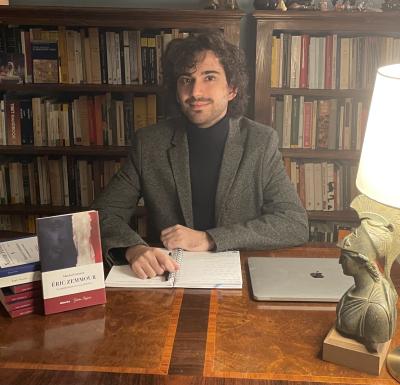
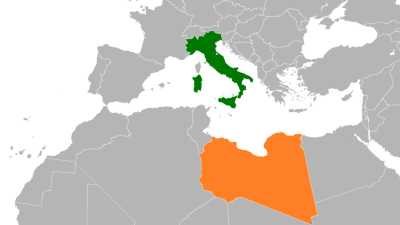

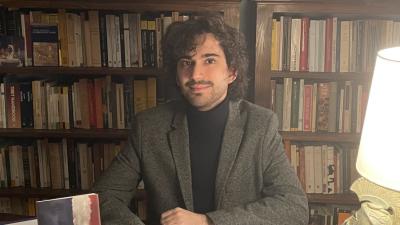

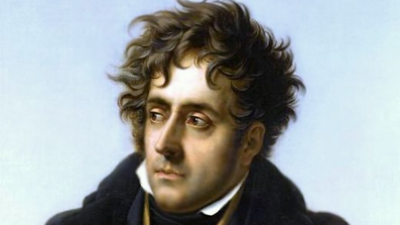

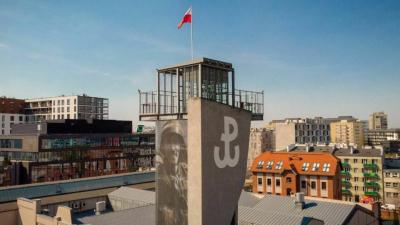

Comments (0)